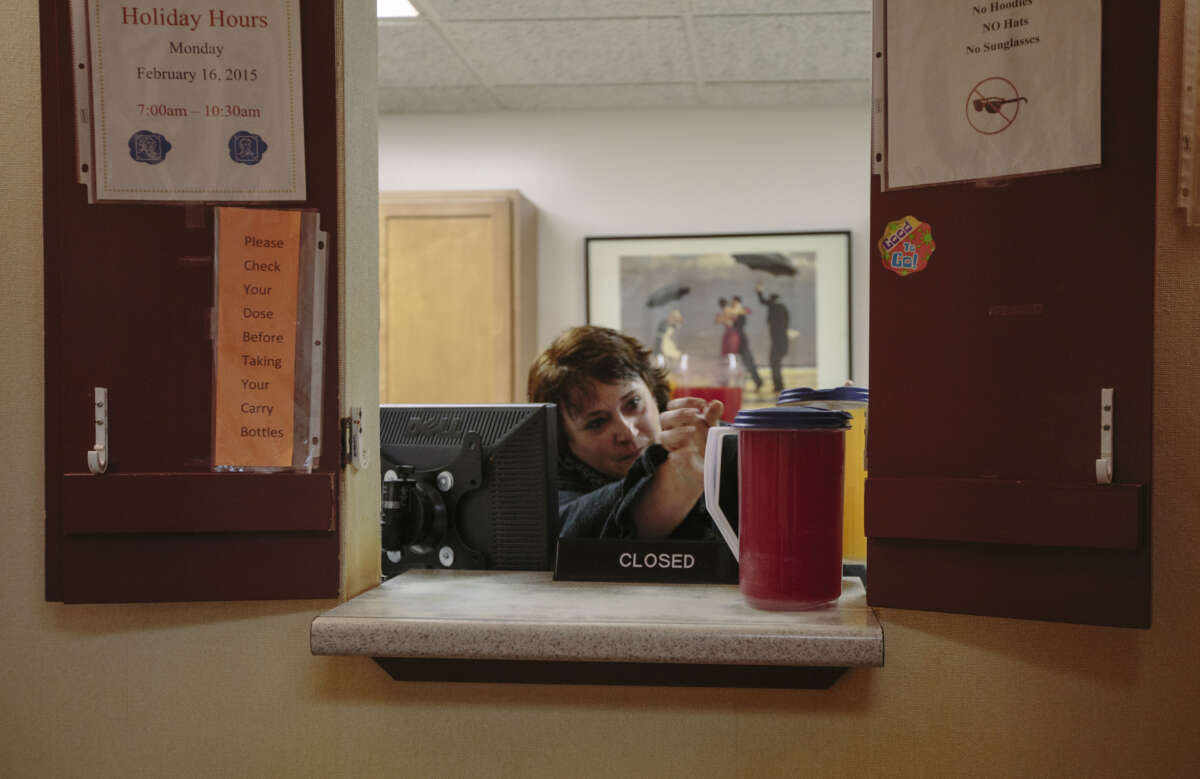Support justice-driven, accurate and transparent news — make a quick donation to Truthout today!
While working as a physician at our local county hospital at San Francisco General recently, I cared for a patient I will call Jack. He stuck out to me because he had been in the hospital for two months, an exceptionally long time for a hospital admission, as most people are only admitted for three to five days. He’d been hospitalized for a stroke and needed post-acute rehabilitation in a skilled nursing facility to help him recover.
Jack also had an opioid use disorder and had been in recovery for more than 30 years. He attributed his success to being on methadone, a lifesaving prescription opioid used to treat dependance and addiction. His methadone treatment was also the very reason why he remained hospitalized for so long — as every nursing facility in the area had declined to accept him.
This practice of facility administrators declining patients on methadone is common. It’s also unethical and illegal. The Americans with Disabilities Act (ADA) was enacted in 1990 to protect the rights of individuals with disabilities, ensuring they receive equal treatment and opportunities in various aspects of life.
Under the ADA, opioid use disorder is considered a disability as a chronic condition. Like Jack’s case, many skilled nursing facilities across the country decline to serve patients solely based on their methadone prescriptions. A recent study found that more than a third of patient hospitalizations involved a rejection of a patient’s referral to another facility because of methadone treatment.
Methadone is a medication approved by the United States Food and Drug Administration to treat individuals with opioid use disorder. It’s a proven and effective treatment that enables many people to regain their health, stability and functionality. But the stigma surrounding methadone, along with a lack of understanding about treatment, has led many administrators at skilled nursing facilities to adopt discriminatory admission policies.
Patients are forced to choose between continuing their lifesaving medication with methadone or recovering after hospitalization or illness. Patients who opt to stop their methadone risk losing a baseline level of treatment stability, leading to higher risk of returning to severe drug use and fatal overdose. These discriminatory policies also extend to jails, which strip individuals of methadone treatment, forcing them into excruciating withdrawal symptoms. Research shows that incarceration causes the risk of fatal overdose to skyrocket both behind bars and upon release.
These practices create an environment where methadone patients are routinely denied the care they need, ultimately exacerbating health disparities. It’s essential for administrators and policy makers at these facilities to recognize that their policies and practices must align with the ADA to provide equitable care to all.
Several skilled nursing facilities and jails are already facing legal action for discriminating against methadone patients. The Department of Justice recently released a statement highlighting how refusing admission to individuals on methadone violates federal law.
While some facility administrators may argue that they refuse methadone patients due to concerns over the potential for misuse or and “diversion” of the medication to nonpatients, these concerns can be addressed through proper medical protocols, supervision and compliance monitoring.
Refusing patients for being on methadone isn’t just outright discriminatory; it also fails to consider an individual’s holistic needs. People receiving methadone treatment often have complex health care requirements, and program staff at these facilities and jails must strive to meet them — just as they would for any other patient.
Additionally, methadone discrimination isn’t just a legal matter — it’s also a moral and public health concern. Denying individuals the opportunity to receive proper care not only infringes on their fundamental rights but also hampers the progress made in their substance-use disorder treatment and recovery. This comes at a time when drug overdoses are one of the leading causes of injury-related deaths in the country. In 2023 alone, there were more than 100,000 overdose deaths in the U.S., and the rate of deaths is only increasing.
It’s essential for policy makers, health care professionals, advocates, community members and individuals to raise awareness about this issue and take action to ensure that the ADA is upheld in all aspects of the health care system.
It’s far past time for every stakeholder to recognize their responsibilities and provide equal access to all patients, regardless of their medical condition or treatment.
Individuals and families facing the immediate and acute issue of not being able to find appropriate post-hospital care due to methadone treatment can file a complaint to the Department of Justice to open an investigation into the practice. Hospitals and professional organizations of health workers can also partner with nursing facilities to address their concerns and set up guidelines in caring for patients on methadone.
The larger community of people on methadone, those who care for them and policy makers must come together to address this issue and ensure that the principles of equity and compassion guide their approach to care for every patient.
Press freedom is under attack
As Trump cracks down on political speech, independent media is increasingly necessary.
Truthout produces reporting you won’t see in the mainstream: journalism from the frontlines of global conflict, interviews with grassroots movement leaders, high-quality legal analysis and more.
Our work is possible thanks to reader support. Help Truthout catalyze change and social justice — make a tax-deductible monthly or one-time donation today.
